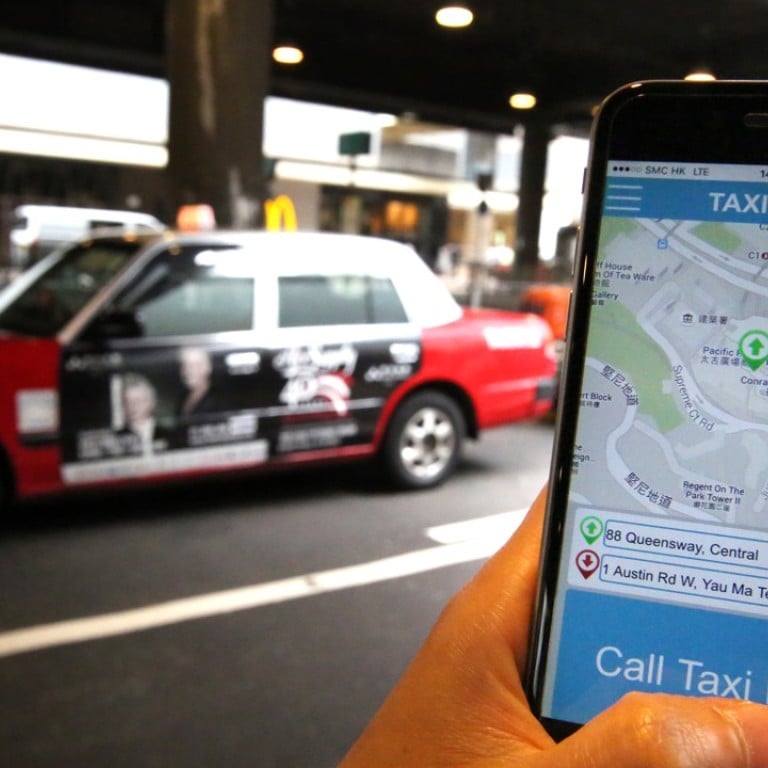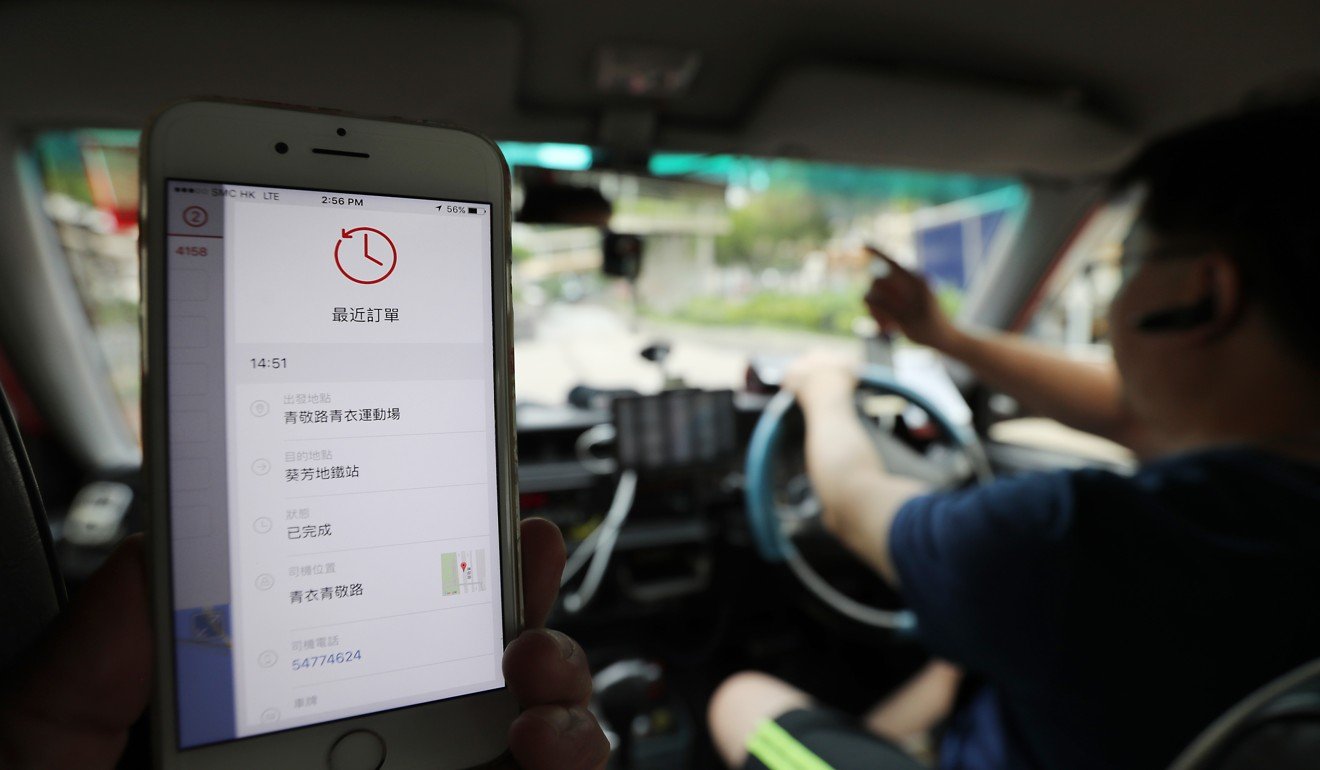
Using Hong Kong’s taxi apps as ‘frustrating’ as flagging down cabs on street, consumer watchdog says
HKTaxi comes out tops for reliability in Consumer Council review of seven apps, but it warns that companies are collecting customer data they don’t need
While taxi apps are meant to be convenient for customers, using them can be as frustrating as trying to flag a cab on Hong Kong’s streets, and worse, they are taking chunks of personal data irrelevant to the service they offer.
The Consumer Council raised these points on Thursday when it released its review of seven well-known taxi-hailing apps, including HKTaxi, Didi Kuaidi, Fly Taxi, God Taxi and SynCab.
From the experience of 80 people who took 429 journeys, the council found that HKTaxi was the most reliable, with customers getting a confirmed booking almost all the time.

However, the other six were less so, dragging down the average confirmed booking rate to 79 per cent.
Drivers were also choosy – the availability of taxis depended on the time of the request, distance of the ride, cost of the journey and the tip offered.
For example, some were less inclined to take cross-harbour rides or passengers wanting to travel short distances. They were also regularly late to pick people up and did not always honour discounts offered via the app to passengers.
Hong Kong’s taxi trade must face up to competition and technology, through gradual change to the industry
These criticisms echo those that have been levelled at cabbies and cab companies – with more than 100,000 complaints made against them in the last 15 years, since the Transport Department started keeping track of figures.
The city’s ubiquitous red taxis, which operate in most urban areas, have been reported for rudeness, overcharging, taking a less direct route and refusing passenger journey requests.
Hong Kong taxi drivers pick up some tips on new course to raise standards
Hong Kong has over 18,000 licensed taxis in operation with an estimated 40,000 drivers. But taxi usage has fallen from 1.3 million daily trips to about 1 million, leading drivers to rage against the rise of ride-hailing giant Uber for stealing their business.
Clement Chan Kam-wing, chairman of the council’s publicity and community relations committee, said apps and taxi operators that wanted to survive would have to “offer services to the expected level of the market” or they would lose out.

SynCab, which had a booking rate of 52 per cent for 60 requested journeys, disagreed with the council’s findings.
A company spokeswoman said it had a limited number of drivers per shift, and its app was not open to all taxi drivers. The company catered largely to users with special needs who required additional help, and such rides might be arranged earlier in advance so that drivers could accommodate passengers’ needs.
“As such, it would be inappropriate and unfair to compare [our] data with other open access taxi apps used by thousands of regular taxi drivers,” a SynCab spokeswoman said.
Why shabby taxis rule Hong Kong streets … and Uber can’t get a break
The consumer affairs watchdog saved its harshest criticism for how apps treated customer data and said it was “deeply concerned” that sensitive information could be leaked.
The “majority” of apps reviewed requested the right to collect and access customer data that was not relevant to its business, such as accessing and altering memory card contents, accessing photos, records of phone communications, contact book personal data, and downloading customer files without prior knowledge.
Chan suggested the mass collection of personal data by the taxi apps companies could be in breach of the Personal Data Privacy Ordinance.
Consumers need updated regulation to protect their personal data
“The data collected should purely be for business use,” Chan said, adding that anything collected over and above that was “not a correct act.”
“We still think a number of them are acquiring information totally unnecessarily, totally unrelated to their services they are providing,” Chan added, warning consumers to study the terms and conditions of access for taxi apps.

